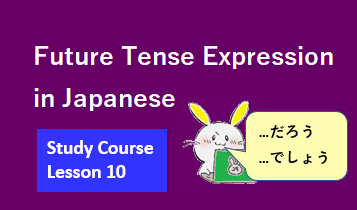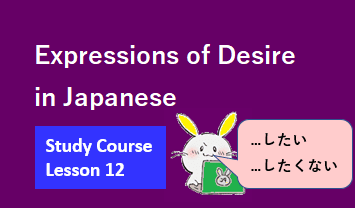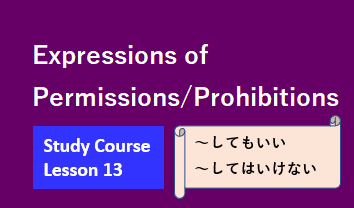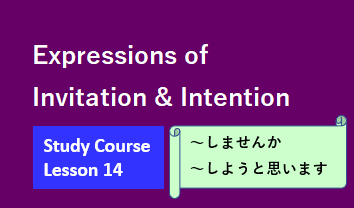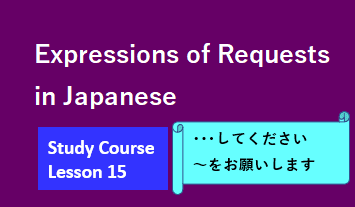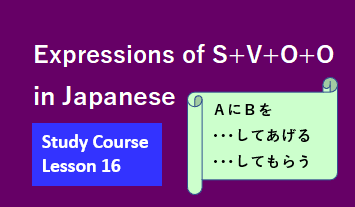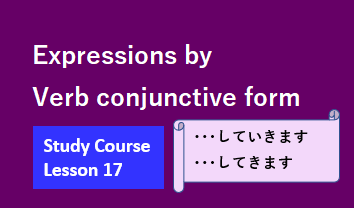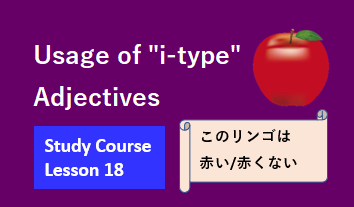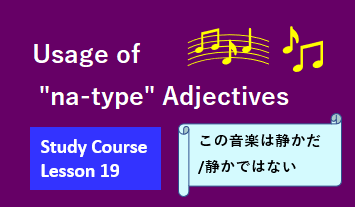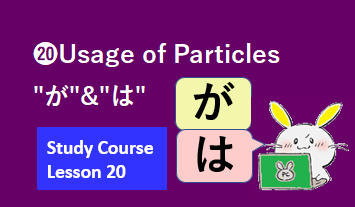Japanese Study Course Lesson11

Hello everyone. I'm JJ. Nice to meet you! Welcome to Japanese Study Course. In lesson 11, we will study the following guess/conviction expressions:
1) Possibility Guess( May be )
2) Subjective Conviction( Must be )
3) Objective Conjecture( Should be )
11-1 Possibility Guess( May be )
Possibility Guess ➡ " Verb( basic form )/ Noun / Adjective +かもしれない / かもしれません "
(1)Verb( basic form )+かもしれない / かもしれません
➀Affirmative form
- He may be at home.
- Ordinary:彼は自宅にいるかもしれない。
- Politely:彼は自宅にいるかもしれません。
- Replacing "かもしれない" with "かもしれません" makes it more polite.
- You can also use the particle "かも" at the end of the sentence to shorten it as "彼は自宅にいるかも。".
◆Detailed explanation
- Ordinary:彼は自宅にいるかもしれない。
- Polite:彼は自宅にいるかもしれません。
- 彼(subject)+は(nominative particle)
- +自宅(object)+に(objective particle, place)
- +いる(verb, basic form)
- +かもしれない(collocation phrase, possibility guess)/ +かもしれません(collocation phrase, polite possibility guess)。
- Other expression:彼は自宅にいるかも。
- 彼(subject)+は(nominative particle)+自宅(object)+に(objective particle, place)+いる(verb, basic form)+かも(ending particle, possibility guess)。
◆Vocabulary note
| 自宅 :(noun) home |
◆Advanced Study Collocation phrase "かもしれない/かもしれません"
| かもしれない | Category: collocation phrase Meaning: possibility guess, may be Advanced commentary: かもしれない ➡ か(adverbial particle)+も(adverbial particle)+しれ(verb"知れる", negative form)+ない(auxiliary verb, negation) 知れる:(verb) can know/I understand naturally/prove |
| かもしれません | Category: collocation phrase Meaning: polite possibility guess, may be Advanced commentary: かもしれません➡か(adverbial particle)+も(adverbial particle)+しれ(verb"知れる", consecutive form)+ませ(auxiliary verb"ます", negative form)+ん(auxiliary verb, negation) |
➁Negative form
- He may not be at home.
- Ordinary:彼は自宅にいないかもしれない。
- Politely:彼は自宅にいないかもしれません。
- Replacing "かもしれない" with "かもしれません" makes it more polite.
- You can also use the particle "かも" at the end of the sentence to shorten it as "彼は自宅にいないかも。".
◆Detailed explanation
- Ordinary:彼は自宅にいないかもしれない。
- Polite:彼は自宅にいないかもしれません。
- 彼(subject)+は(nominative particle)
- +自宅(object)+に(objective particle, place)
- +い(verb"いる", negative form)+ない(auxiliary verb, negation)
- +かもしれない(collocation phrase, possibility guess)/ +かもしれません(collocation phrase, polite possibility guess)。
- Other expression:彼は自宅にいないかも。
- 彼(subject)+は(nominative particle)+自宅(object)+に(objective particle, place)+い(verb"いる", negative form)+ない(auxiliary verb, negation)+かも(ending particle, possibility guess)。
(2)Noun +かもしれない / かもしれません
- Your child may be a genius.
- Ordinary:あなたのお子さんは天才かもしれない。
- Politely:あなたのお子さんは天才かもしれません。
- Replacing "かもしれない" with "かもしれません" makes it more polite.
- You can also use the particle "かも" at the end of the sentence to shorten it as "あなたのお子さんは天才かも。".
◆Detailed explanation
- Ordinary:あなたのお子さんは天才かもしれない。
- Polite:あなたのお子さんは天才かもしれません。
- あなたのお子さん(subject)+は(nominative particle)
- +天才かもしれない(noun predicate)/ +天才かもしれません(noun predicate)。
- ※「天才かもしれない(noun predicate)」➡天才(noun)+かもしれない(collocation phrase, possibility guess)
- ※「天才かもしれません(noun predicate)」➡天才(noun)+かもしれません(collocation phrase, polite possibility guess)
- Other expression:あなたのお子さんは天才かも。
- あなたのお子さん(subject)+は(nominative particle)+天才かも(noun predicate)。
- ※「天才かも(noun predicate)」➡天才(noun)+かも(ending particle, possibility guess)
- See Lesson 3(Noun Predicate) for more information on noun predicate sentences.
◆Vocabulary note
| お子さん:(noun) child 天才 :(noun) genius |
(3)Adjective +かもしれない / かもしれません
- This is a fine dining restaurant, so prices may be high.
- Ordinary:ここは高級レストランなので、価格が高いかもしれない。
- Politely:ここは高級レストランなので、価格が高いかもしれません。
- Replacing "かもしれない" with "かもしれません" makes it more polite.
- You can also use the particle "かも" at the end of the sentence to shorten it as "ここは高級レストランなので、価格が高いかも。".
◆Detailed explanation
- First sentence:ここは高級レストランなので、
- ここは(subject)+高級レストラン(noun predicate)+なので("な"[auxiliary verb”だ”, consecutive form] + "ので"[conjunction])、
- Ordinary:価格が高いかもしれない。
- Polite:価格が高いかもしれません。
- 価格(subject)+が(nominative particle)
- +高いかもしれない(adjective predicate)/ +高いかもしれません(adjective predicate)。
- ※「高いかもしれない(adjective predicate)」➡高い(adjective)+かもしれない(collocation phrase, possibility guess)
- ※「高いかもしれません(adjective predicate)」➡高い(adjective)+かもしれません(collocation phrase, polite possibility guess)
- Other expression:価格が高いかも。
- 価格(subject)+が(nominative particle)+高いかも(adjective predicate)。
- ※「高いかも(adjective predicate)」➡高い(adjective)+かも(ending particle, possibility guess)
- See Lesson 3(Adjective Predicate) for more information on adjective predicate sentences.
◆Vocabulary note
| 高級レストラン:(noun) fine dining restaurant 価格 :(noun) price 高い :(adjective) high/expensive |
11-2 Subjective Conviction( Must be )
Subjective Conviction ➡ " Verb( basic form )/ Noun / Adjective+にちがいない / にちがいありません "
- She must be able to speak Chinese.
- Ordinary:彼女は中国語を話せるにちがいない。
- Politely:彼女は中国語を話せるにちがいありません。
- Replacing "ない" with "ありません" makes it more polite.
◆Detailed explanation
- Ordinary:彼女は中国語が話せるにちがいない。
- Polite:彼女は中国語が話せるにちがいありません。
- 彼女(subject)+は(nominative particle)
- +中国語(object)+を(objective particle)
- +話せる(verb)
- +にちがいない(collocation phrase, subjective conviction)/ +にちがいありません(collocation phrase, polite subjective conviction)。
◆Vocabulary note
| 中国語 :(noun) Chinese 話せる :(verb) can speak ※Regarding verbs that indicate "possible expression", please refer to Lesson 9(Possible Expressions [2]). |
◆Advanced Study Collocation phrase "にちがいない/にちがいありません"
| にちがいない | Category: collocation phrase Meaning: subjective conviction, must be Advanced commentary: にちがいない ➡ に(objective particle)+ちがい(noun)+ない(auxiliary verb, negation) ちがい(違い):(noun) difference |
| にちがいありません | Category: collocation phrase Meaning: polite subjective conviction, must be Advanced commentary: にちがいありません ➡ に(objective particle)+ちがい(noun)+あり(verb"ある", consecutive form)+ませ(auxiliary verb"ます", negative form)+ん(auxiliary verb, negation) |
11-3 Objective Conjecture( Should be )
Objective Conjecture ➡ " Verb( adnominal form )/ Noun+"の" / Adjective +はずだ / はずです "
- She lived in China for five years, so she should be able to speak Chinese.
- Ordinary:彼女は中国に5年間住んでいたので、中国語を話せるはずだ。
- Politely:彼女は中国に5年間住んでいたので、中国語を話せるはずです。
- Replacing "だ" with "です" makes it more polite.
◆Detailed explanation
- Ordinary:彼女は中国に5年間住んでいたので、中国語を話せるはずだ。
- Polite:彼女は中国に5年間住んでいたので、中国語を話せるはずです。
- 彼女(subject)+は(nominative particle)
- +中国に5年間住んでいたので(subordinate clause, reason)、
- +中国語を話せるはずだ(noun predicate)/ +中国語を話せるはずです(noun predicate)。
- ※「中国語を話せるはずだ(noun predicate)」➡中国語を話せる(noun modifier)+はず(noun)+だ(auxiliary verb, affirmation)
- ※「中国語を話せるはずです(noun predicate)」➡中国語を話せる(noun modifier)+はず(noun)+です(auxiliary verb, polite affirmation)
- ※「中国に5年間住んでいたので(subordinate clause, reason)」➡中国(object)+に(objective particle, place)+5年間(time)+住んで(verb"住む", consecutive form)+い(auxiliary verb"いる", past tense form)+た(auxiliary verb, past tense)+ので(conjunction)
- ※「中国語を話せる(noun modifier)」➡中国語(object)+を(objective particle)+話せる(verb"話せる", adnominal form)
◆Vocabulary note
| 中国:(noun) China 住む:(verb) live はず:(noun) should |
Please note that in the case of a noun predicate sentence, it becomes "〇〇のはずだ" by adding the particle "の", such as "明日の試合のエンジェルスのピッチャーは大谷翔平のはずだ。(Shohei Ohtani should be the pitcher for the Angels in tomorrow's game.)"


Today's lesson ends here. Did you understand today's theme "Possibility Guess, Subjective Conviction and Objective Conjecture"? Next time, we will study expressions such as "I want to ・・・". See you!
See you next time!

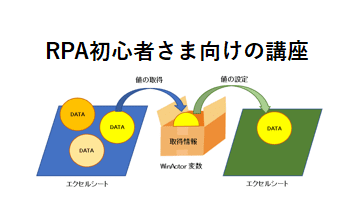

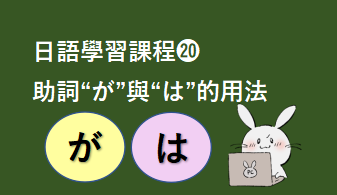






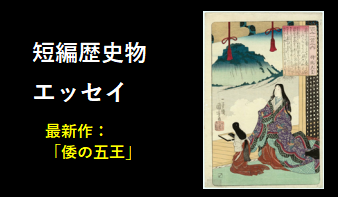
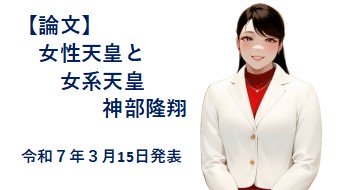



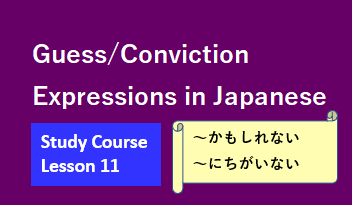


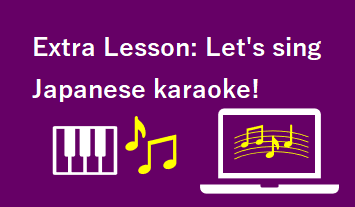
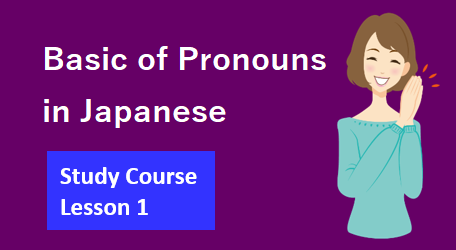
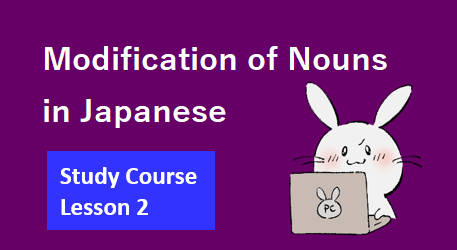


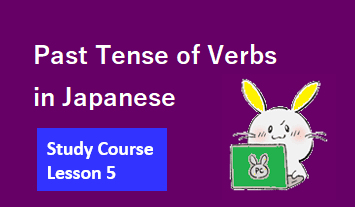
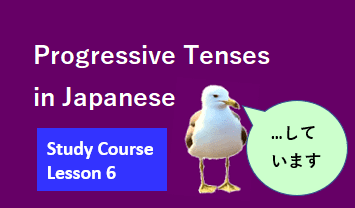
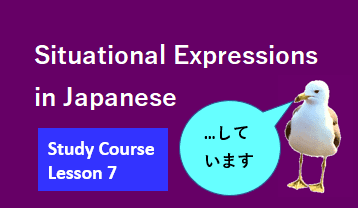
![❽Possible Expressions [1]](https://ryusho-kanbe.com/wp-content/uploads/2023/04/スクリーンショット-2023-04-03-100754.png)
![❾Possible Expressions [2]](https://ryusho-kanbe.com/wp-content/uploads/2023/04/スクリーンショット-2023-04-28-095816.png)
